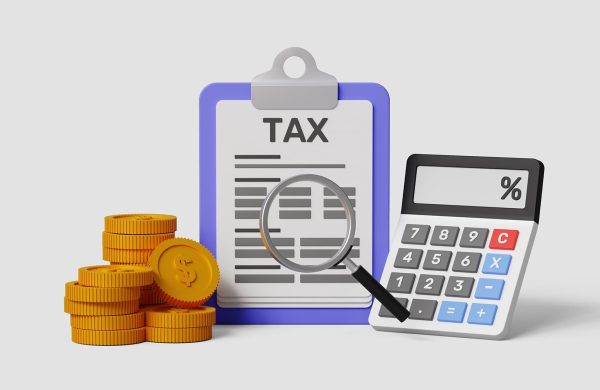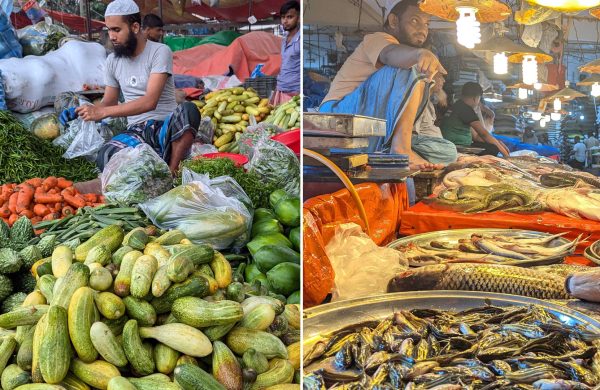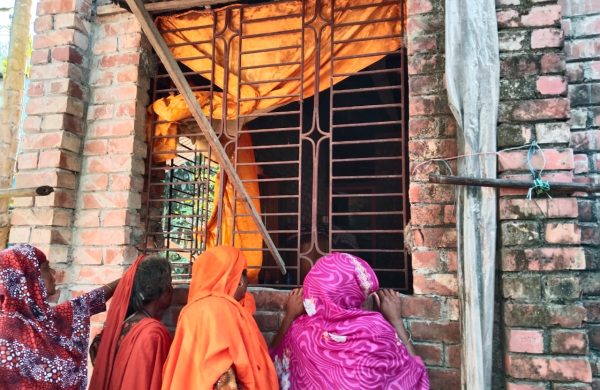Import advance tax set to climb 7.5%, affecting from baby food to cars
- Update Time : Friday, May 23, 2025

Staff Correspondent:
The government is poised to significantly increase the Advance Tax (AT) on commercial imports in the upcoming budget, a move aimed at boosting revenue and compensating for persistent compliance failures in local Value Added Tax (VAT) collection. The proposed hike is drawing sharp criticism from businesses and consumer rights advocates, who warn of immediate price increases for a wide array of goods.
Under the new plan, the AT on numerous imported items, including baby food, spices, fruits, garments, vehicles, toys, ceramics, bathroom and electric fittings, switches, and medical devices, will jump from the current 5% to 7.5%. Simultaneously, the existing 7.5% VAT on local supply could be abolished from the next fiscal year, and the 3% AT on industrial inputs might be reduced to 2%.
Officials at the National Board of Revenue (NBR) state that this measure is a direct response to widespread VAT evasion at the local level. They anticipate the increased import AT will generate an additional Tk4,000-Tk5,000 crore in revenue for the next fiscal year.
According to the NBR, in FY24 the revenue authority collected Tk12,789 crore as AT and Tk11,593 during 10 months (July to April) of FY25.
An anonymous NBR official explained the rationale: “Very little VAT is actually collected on local sales. On the other hand, most of the AT paid on industrial raw materials gets refunded or adjusted later. Raising AT at the import stage is more effective, as it ensures immediate collection and is harder to evade.” The official added, “Even if VAT is reduced or exempted entirely, there won’t be significant revenue loss. But raising AT on imports will bring in substantial income.”
However, experts and business leaders are sounding the alarm. SM Nazer Hossain, vice president of the Consumers Association of Bangladesh, criticised the approach, “Instead of catching VAT evaders, the government is punishing all importers. As a result, prices will rise the very next day.” He further asserted that such tax increases disproportionately affect honest businesses, while dishonest ones, often in collusion with officials, remain unimpacted. “Ultimately, it’s the consumers who pay the price. Raising taxes across the board is not a justifiable solution.”
Historically, VAT was collected in advance as Advance Trade VAT. While this system was abolished under the new VAT law, AT now serves as a proxy VAT at the import stage. It’s important to note that AT does not apply to essential imports like edible oil, sugar, select fuels, industrial machinery, or raw materials used in production. However, it encompasses most consumer goods classified as commercial imports.
IMPORTERS EXPRESS GRAVE CONCERNS
The proposed changes are particularly concerning for fruit and vehicle importers. The government had temporarily suspended AT on fruit imports, but this benefit is set to expire in June. If not extended and the AT rises to 7.5%, the prices of apples, oranges, and grapes are expected to increase sharply. Md Sirajul Islam, president of the Bangladesh Fruits Importers Association, lamented, “If AT returns in July and rises to 7.5%, prices of apples, oranges, and grapes will increase sharply.” He highlighted that the current import tax is already a hefty 110% on every Tk100 of fruit, warning that “with demand already down due to high taxes, this increase will make matters worse.”
Vehicle importers echoed similar anxieties. Md Shahidul Islam, a prominent importer and former vice president of the Bangladesh Reconditioned Vehicles Importers and Dealers Association, projected that a 2.5% AT hike would add Tk1 lakh to the cost of a Tk40 lakh car, directly impacting consumers. He dismissed the idea that scrapping the 7.5% AT on local supplies would balance the equation, stating, “Once AT is paid at the import stage, it’s not collected again on local sales. The government gets nothing more.” He also noted a nearly 40% drop in vehicle sales this year due to currency devaluation and political uncertainty, cautioning that further tax increases would decimate sales.
EXPERTS CALL FOR TARGETED SOLUTIONS, NOT BLANKET HIKES
Zaidi Sattar, chairman of the Policy Research Institute, strongly criticised the government’s strategy. “Instead of addressing weaknesses in VAT enforcement on local sales, the government is raising taxes on all commercial imports. This hurts the economy, especially as Bangladesh prepares for LDC graduation.” He argued that increasing taxes on formal trade discourages growth and competitiveness, deeming it an unsustainable strategy for a maturing economy.
Experts also pointed out that while AT is theoretically refundable upon proof of value addition, in practice, few businesses successfully claim refunds. Foreign investors are also reportedly concerned about the NBR’s reliance on import-stage taxation as a substitute for effective compliance.
According to an NBR source, Bangladesh’s domestic trade volume is approximately 17% of GDP, or around Tk7 lakh crore. If VAT were fully collected from this, the revenue could reach Tk50,000 crore. However, only about Tk4,000 crore is currently being realised. Tax expert Snehasish Barua concluded, “The government has failed to enforce proper VAT collection at the local level, despite multiple legal actions. As a result, it is taking the easier route of taxing imports.” He reiterated, “Whatever extra revenue the government collects this way will come out of consumers’ pockets.”

















